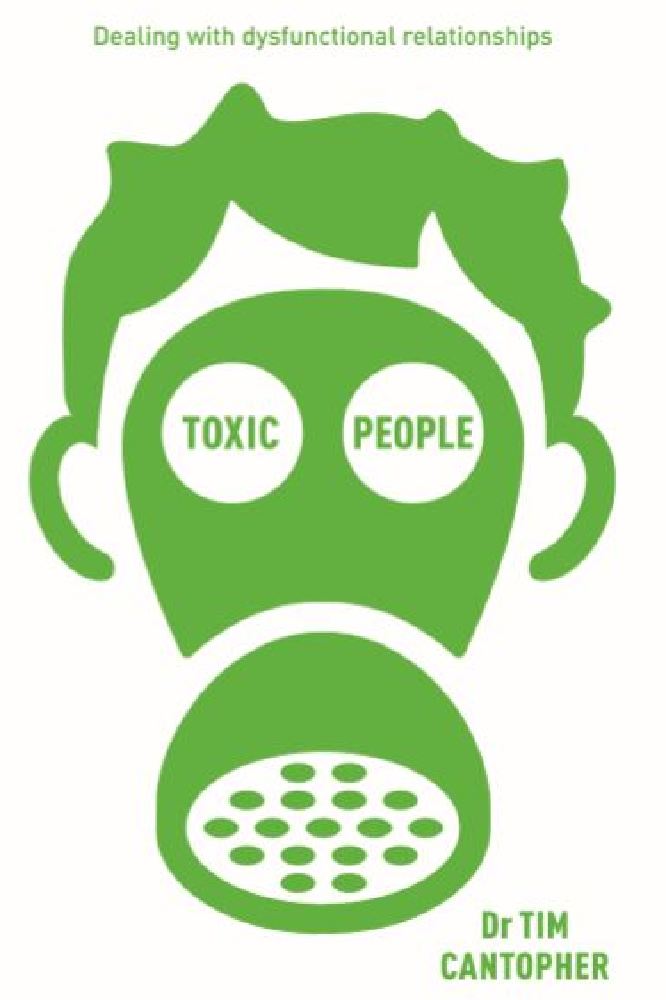Since I retired from clinical practice as a psychiatrist two years ago I have had a chance to look back at my career and the patients I saw, most of whom were suffering from stress-related illness of one kind or another. My first conclusion is that most of these people had been made ill by other people and my second is that their illnesses were avoidable. However, my third is that sufferers attract toxic people like moths to flame, because they are the givers of the world and are easy to take advantage of.

Dr Tim Cantopher
Here are my top ten ways to avoid being harmed by toxic people:
- Be aware that you are vulnerable. You are if are more than half of these: Kind, caring, trusting, generous, forgiving, liable to put yourself last, sensitive, unassertive, self-critical, lacking confidence, keen for approval and to avoid conflict, anxious, prone to depression.
- Be aware that you are in the presence of a toxic person. These are some of the warning signs: When with them you often feel: exhausted, unhappy, stressed, obliged, pushed to do what you don’t want to do, guilty, judged, humiliated, needing to keep them happy and to give them more than anyone else, extra careful, fearful, without choices, unable to say what you mean, trapped, often needing to make special allowances for them, tending to collude in their bad behaviour, induced to ignore your own needs, that you are just waiting to hear the next unflattering story about yourself which has been spread by them. Again, if several of these ring a bell with you, it may be that you are in the presence of a toxic person.
- Seek support from those who really care about you. The toxic person may try to stop you doing this, telling you that you are betraying their privacy and being disloyal. Don’t be deflected. There’s nothing wrong with talking about relationship issues with your friends. Most people in good relationships do it all the time.
- Set firmer boundaries. This includes setting limits on how much you help, particularly those who demand a lot from you. It’s difficult and a very big subject. Again the key is seeking support and advice from wise friends or family. There is more detail on this issue in my book (see below).
- Don’t right-fight, but do be forthright about your feelings. Right-fighting is a term coined by the American popular psychologist Dr Phil McGraw. It means wasting your time in arguments about which of you is right. If you’re talking about feelings, neither of you is right or wrong. Feelings are just feelings and they belong to you. You don’t have to justify them.
- Take responsibility for yourself, your actions and your children, but not for another adult person. By all means help (up to a limit) and advise if asked, but in the end every person is responsible for themselves.
- Understand yourself and the person you’re dealing with. Don’t get angry, understand what’s going on and then be strategic. In relationships as in everything else in life, look for opportunity, not fairness.
- Look for beauty and healers. There are a lot of really lovely people (I’m talking about personality, not appearance). Go find them.
- Behaviour is more important than genetics. To me, a mother is someone who is motherly, a father fatherly and so on. I’m not saying reject your parents, but if they take from you more than they give, work on your boundaries. What is more, a friend is someone who is friendly. Are yours? Do you need to shrink your address book?
- Try to avoid angry, aggressive, prejudiced and bigoted people (unless you share their prejudices). By definition, you can’t argue with prejudice, so best avoid it.
That is all there is space for in this article. There’s a lot more in my book ‘Toxic People - Coping with Dysfunctional Relationships’ (Sheldon Press).


